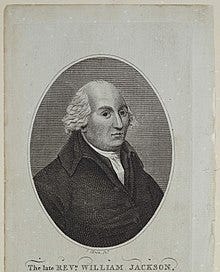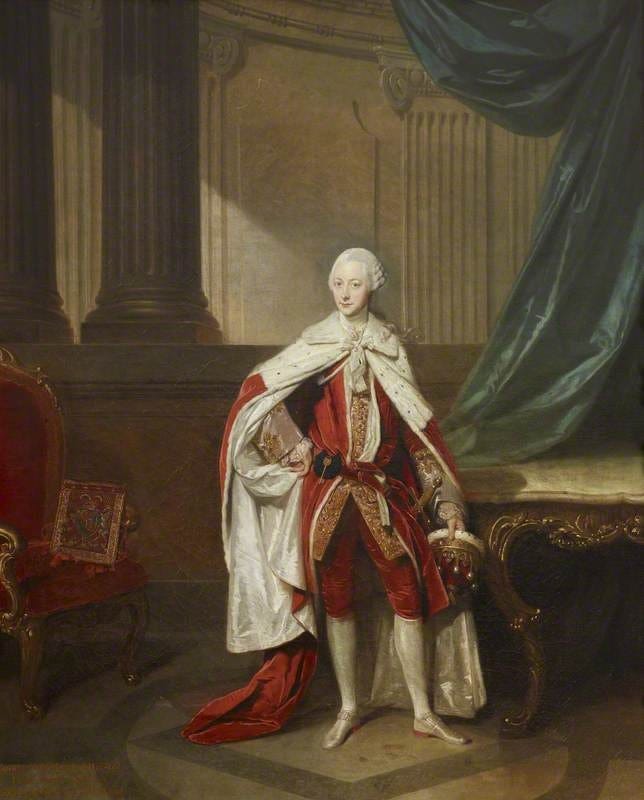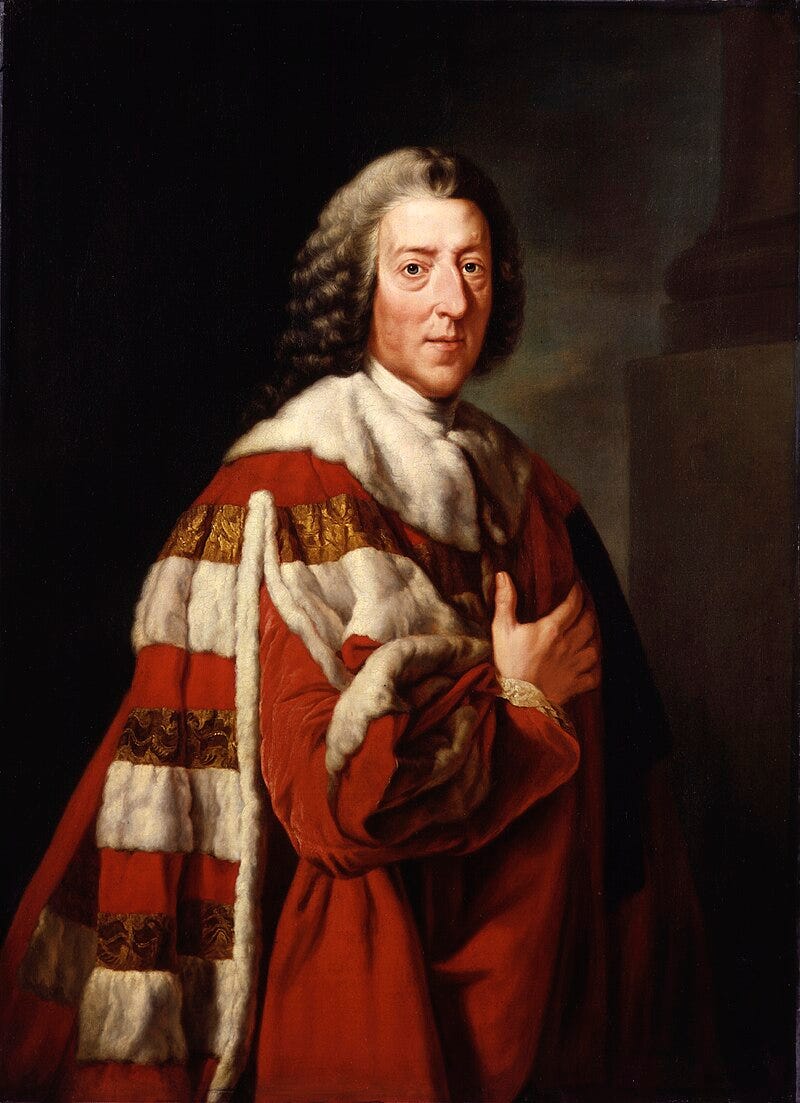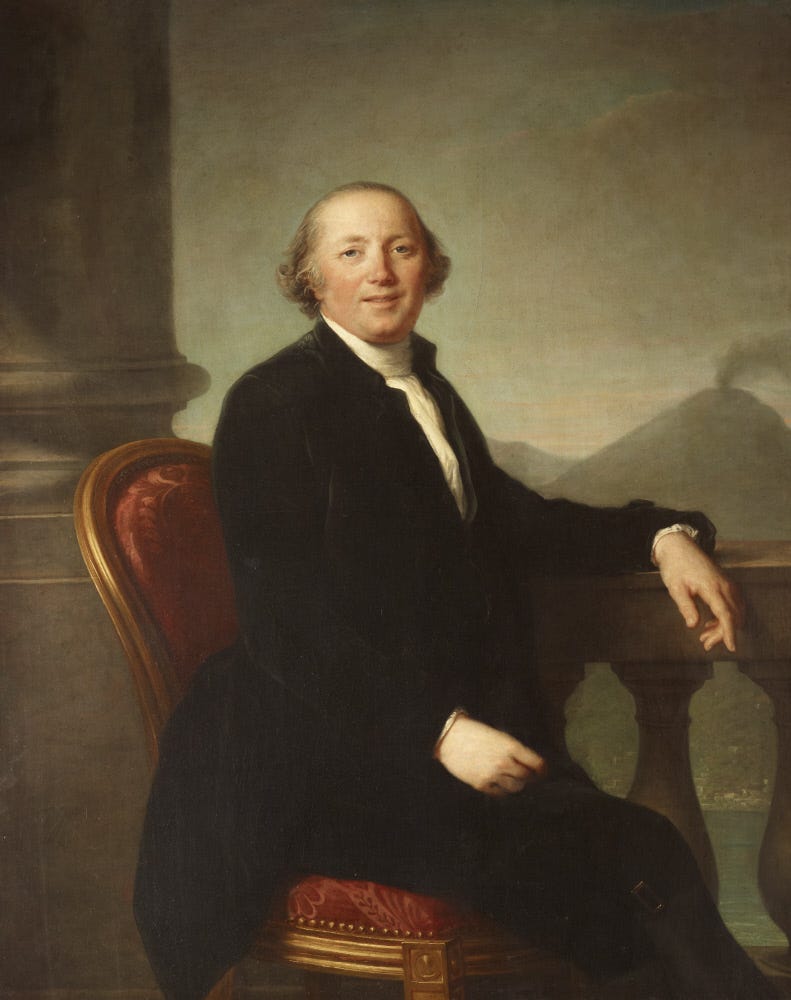Returning to Ireland for the Chief Secretary, Augustus Hervey.
In the company of the gentry.
As we move in to the next decade of Jacksons life, the 1760s, we remain frustratingly dependent on the sources utilised in our last post. The first half of Jackson life is incredibly elusive and undocumented, though I do have hopes that sources exist which could shed more light on it - it is but a matter of travel and the finances to do so, something I doubt I will manage in the near future.
We ended last time on the note, that Jackson had become friends with the Hervey family of Bristol during his time at university (which one?), and having become an ordained member of the church, was employed by Lord Bristol (2nd Earl, George Hervey) as a private chaplain on a handsome salary.
Without knowing the details of his education and date of ordination (something absent from Church of England records) - it is difficult to know how long he had been in the employ of Lord Bristol, but certainly it would have been some time in the 1760sm and possibly as early as the late 1750s? Regardless, it is suggested that was still employed in this capacity by 1766, when Lord Bristol was appointed Lord Lieutenant of Ireland.
Up until this point for near a century, the role of the Lord Lieutenant in Ireland had become and absentee one. Since the Williamite Wars, the role had come to be considered a less important and less necessary one, and those appointed to the role remained in England until absolutely required to be present in Dublin - for the formation of parliament and so on. This was largely because the powers entrusted to the Lord Lieutenant had diminished in the face of a strong Protestant Elite in Ireland who sought further independence from Westminster as the 18th century progressed.
It was considered by many to be a poor position to be appointed to, Lord Northington called it ‘an honourable banishment’ and Lord Bristol himself when asked to fill the role described it as ‘this honourable Irish exile’. Bristol’s appointment under William Pitt the elder, was to be a change in attitude towards the Lord Lieutenancy. By the late 1760s it had become clear that a return of resident Lord Lieutenants had become necessary to adequately steer the Irish kingdom in a manner suited to the whims of Westminster. Hervey was to be the first resident Lord Lieutenant since the 17th century.
William Jackson, already placed within the Bristol household was given the opportunity to gain further employment by joining the Hervey family across the Irish Sea as secretary to August Hervey, who would serve as Chief Secretary to his brothers Lieutenancy.
He supposedly resided in the house of Barry Maxwell, 1st Earl of Farnham for six months, possibly from the Autumn of 1766 until the Spring of 1767. There are a collection of papers in the National Library of Ireland belonging to the Farnham Estate but very few belonging to Barry Maxwell, which provides yet another frustrating dead end.
Unfortunately for Jackson, the ministry of William Pitt was an unsteady one, and not long after Bristols appointment, the government collapsed and a new one had to be formed, making the appointment null and void. In the end, after 10 months, Bristol never made an effort to visit Ireland in his capacity of Lord Lieutenant and for Jackson, any prospect of official work had come to an end. In the Hibernian Magazine, they point out that in a perfect world, Jackson could have climbed the ranks in Ireland and claimed a Bishopric, as another brother of Lord Bristol, Frederick Augustus was to do.
It is unclear what relationship developed between Jackson and the Hervey family following this episode of his life. I’m unable to find out, right now, what Jackson did for the next few years of his life. It may be possible that he continued on as a private chaplain and secretary of sorts, but no mention of the connection arises again until 1775 and for very different reasons.
The next concrete evidence of what he ended up doing, does not appear until 1772, by which time he had become an editor of a popular daily newspaper The Public Ledger. He is known to have been a preacher at St Mary-le-Strand and Tavistock Chapel in London, but there are not dates for these activities. If I had to make an assumption, I would say he became a preacher between 1767-1772 as it would place him in London and away from the Hervey family estates, and allow him to build London connections enough to earn the role of editor at a newspaper with some renown.
If you like my work and want to say thanks, or support me in another way, you can buy me a coffee! Nothing is expected, but any support is greatly appreciated! https://www.buymeacoffee.com/ruairiaor
Further Reading:
Walker's Hibernian magazine, or, Compendium of entertaining knowledge, May 1795.
Thomas MacNevin, The lives and trials of Archibald Hamilton Rowan, the Rev. William Jackson, the Defenders, William Orr, Peter Finnerty, and other eminent Irishmen (1846).
Peter Gray and Olwen Purdue, The Irish Lord Lieutenancy c 1541-1922 (2012).








